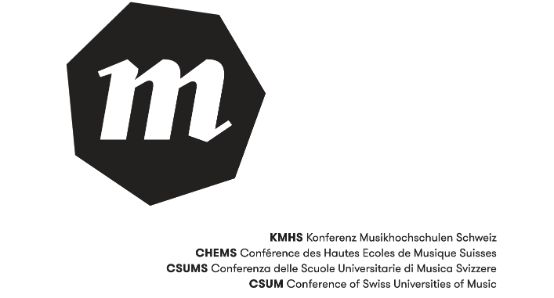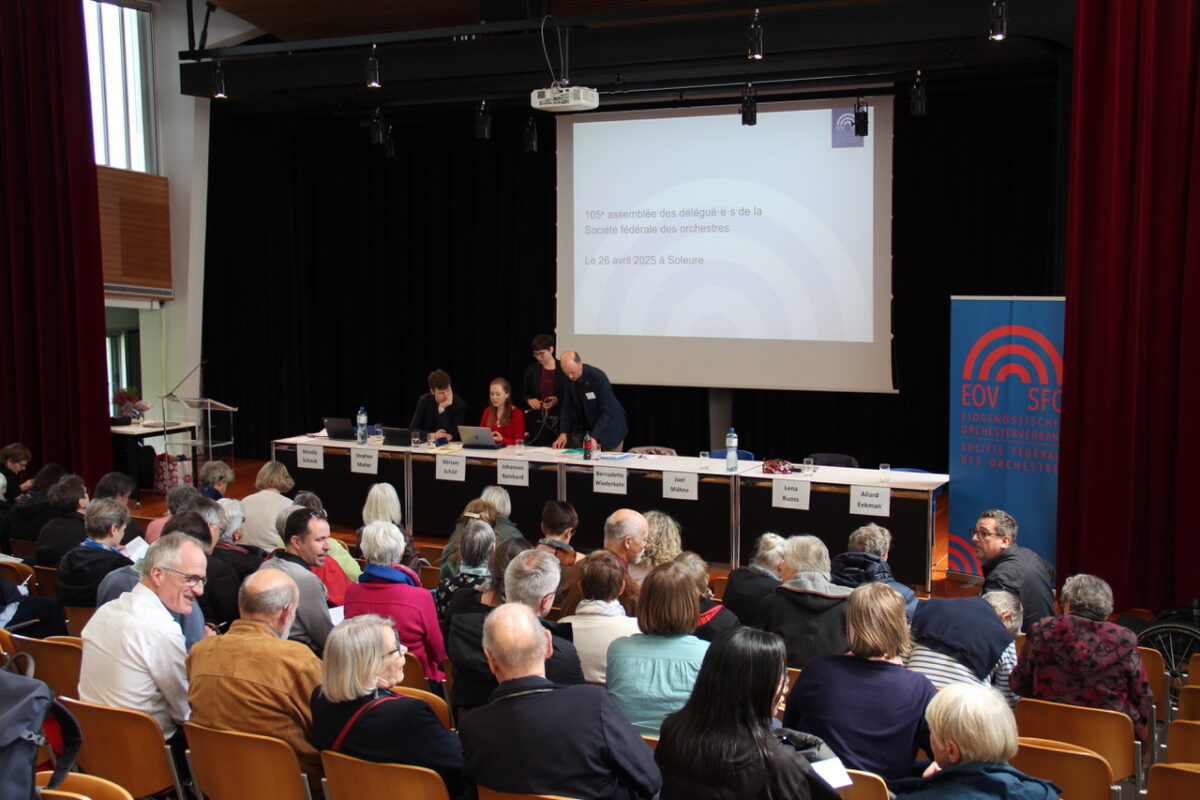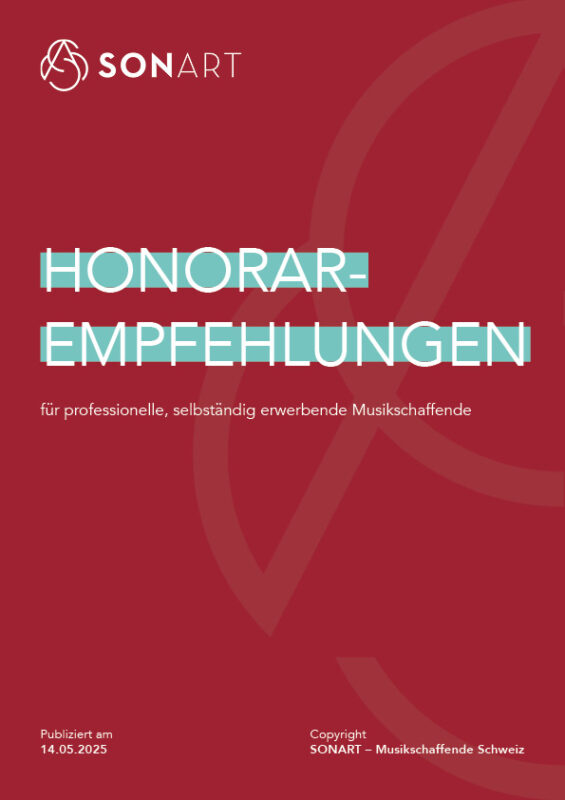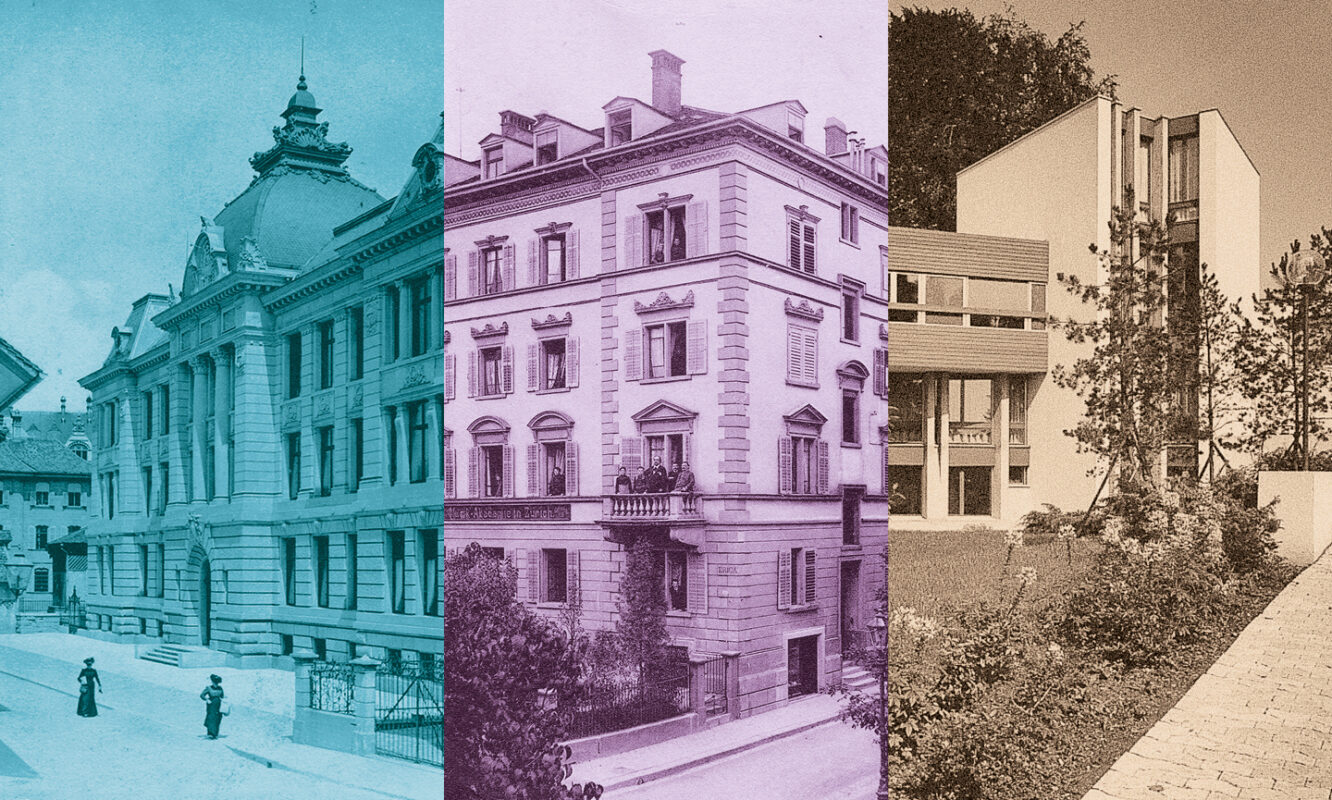Can you compose folk music?
There is not (yet) an actual degree course in folk music composition. However, the Lucerne School of Music is a competence center for folk music, which is why various exponents comment on this topic in this issue.

MvO - Dominik Flückiger studies at the Lucerne University of Applied Sciences and Arts and is intensively involved in the composition of folk music. He has been composing since the age of 14. Inspired by other styles of music, he initially experimented on the piano and tried out sounds that had nothing to do with folk music. At the age of 16, he focused on folk music and was quickly able to compose it in the "traditional" sense. Through his studies, he then began to explore the more complex forms of composing and began to think about music theory. For him, composing is a free process in which many different styles flow together. For him, free means folk music. But free also means that he has to think carefully about every note and every chord. Flückiger composes numerous works for the Alpinis folk music formation at Lucerne University of Applied Sciences and Arts. He has also learned how each instrument sounds and what the various technical possibilities of the instruments are.
Flückiger divides the composition of folk music into three categories. 1. a new composition resembles the old, traditional folk music, for example by copying the style of a particular folk music composer. This type is easy for those who already have a lot of experience with folk music and is particularly suitable for getting others to play along as quickly as possible. 2. composing in the style of traditional folk music, but making it sound modern, for example through progressive harmony. Sometimes it is enough to play a piece of folk music in a minor key instead of a major key. The course of a piece can also be freely arranged, whether by adding an introduction or improvising on a specific passage. In this type of composition, the "folk music groove" is retained. The inclusion of foreign folk music can also be enriching. In the first two variants, usually only a lead sheet with the first and second voice and the corresponding chord symbols is notated, the arrangement is then created while playing. In the third category, the music is usually written out in full and arranged. This is the case when folk music is combined with other musical styles. Thanks to music studies, you are familiar with the different styles, but you still need in-depth knowledge of music theory to compose. Is that still folk music? Flückiger is of the opinion that such compositions may sound "modern" or "new", but cannot be assigned to any other musical genre than folk music.
Matthias von Orelli in conversation with Albin Brun (guest lecturer at the Lucerne University of Applied Sciences and Arts) and Kristina Brunner (Schwyzerörgeli major at the Lucerne University of Applied Sciences and Arts, teaches the subject at music schools in the Gürbetal region and the city of Lucerne).
Albin Brun, is it even possible to study folk music composition? Is Lucerne a center for this and what role does the university as a whole play?
AB: There is no actual degree course in folk music composition in Switzerland. However, as Lucerne is the only university where you can study folk music, it is already playing a pioneering role. Students can choose from a wide range of electives and also study folk music composition with lecturers such as Markus Flückiger. There is also the university's own folk music ensemble Alpinis, which I currently direct and which sees itself as a real laboratory where students can bring their compositions, which we then work on together and perform at concerts. As you have to choose between a classical or jazz profile at the university, all students inevitably come into contact with other music. Accordionist Fränggi Gehrig, for example, took a minor in composition with Dieter Ammann (and won the Fondation SUISA folk music prize in 2016). This cross-style training and the skills learned are naturally reflected in the compositions of young musicians such as Marcel Oetiker, Pirmin Huber, Christoph Pfändler, Maria Gehrig, Nayan Stalder and Adrian Würsch. Up to now, most folk music composers have been self-taught, so I think that the influence of higher education will mean that more sophisticated and complex compositions will increasingly be heard. But that doesn't mean that the "simpler" music should be pushed aside! After all, folk music thrives on great diversity, and nothing should change in that respect; it's not about academization at all. But it is nice to see how folk music is alive at its core and continues to develop in various directions at the edges.
What is your impression, Kristina Brunner?
KB: There is no explicit study program for folk music composition. In the Bachelor's degree, all students study an instrument in the jazz or classical profile as their main subject. They also attend the folk music specialization, where composition becomes a topic in some form for many students. However, the last semester of theory lessons consists of composing and performing a piece for all students. This involves individual lessons with a composition lecturer. Apart from this semester, however, composing is not compulsory. In the Master's degree course, you then have the opportunity to choose the composition minor and deepen your knowledge in this area.
How does composing folk music differ from other compositional processes, for example in classical music?
KB: As I'm not familiar enough with other compositional styles, I can only answer from my own perspective. I think that the term folk music offers a lot of possibilities and freedom. For me, a lot of things come about through improvisation and trial and error, which also gives composing something very intuitive for me. In general, I also think that musical styles and their compositional styles are no longer so clearly defined these days and the boundaries are fluid. In traditional folk music, melodies usually consist of chord breaks and scale sections, which are then harmonized with the main steps (I, IV, V, sometimes II or VI). This framework can be expanded or supplemented with other influences. This creates a very versatile field that I really appreciate in its entire range.
To what extent is composing encouraged at the university?
KB: I was particularly encouraged by my main subject teacher Markus Flückiger to bring my own pieces to individual lessons or ensemble rehearsals. Especially in the Alpinis folk music ensemble, which is always made up of different students, you have the opportunity to try out a lot of things. Thanks to the wide range of instruments, you can find out over time which instruments are suitable or what you need to look out for technically in an arrangement. I was able to learn a lot by trying things out for myself and getting feedback from the lecturers. In the folk music specialization, you are always encouraged to compose and play your own pieces. This promotes the students' independence enormously, which I really appreciate.
What is individual and unique about folk music from a compositional point of view?
AB: Folk music lives strongly from melodies, i.e. without a recognizable melody, a composition is hardly perceived as folk music. This limits an overly intellectual approach. And then, of course, there is a large fund of tradition that you can rub up against. You can extend, expand and break up the traditional, and you can subvert expectations. In addition, the sound potential and playing style of typical folk music instruments such as the Schwyzerörgeli, dulcimer or Halszither still have a lot to offer.
How do you assess the current productivity in the folk music sector - is it particularly diverse, is it oriented towards trends?
AB: The new folk music scene as I experience it is relatively manageable. Nevertheless, it is very diverse and thrives on individual personalities. Each of them has their own direction. After a long period of little innovation in folk music, there has been a real spirit of optimism in recent years. As a result of this opening up, an audience that previously had no access at all is suddenly interested in this music. In addition to the Lucerne University of Applied Sciences and Arts, festivals such as Alpentöne Altdorf or Stubete am See in Zurich have also had an important influence on the development of this scene. Institutions such as the Haus der Volksmusik in Altdorf, the Rothuus in Gonten and Klangwelt Toggenburg also contribute to the vitality of folk music with a wide range of courses on offer.
Openness
What are the trends that can be identified in current, contemporary folk music?
AB: There are no obvious trends to emulate. But as I said, the openness towards other styles is obvious to the eyes and ears, and in many places the blinkers are off. Scandinavian folk music is certainly a major influence, but inspiration is also drawn from jazz, classical music, minimal music, pop, rock, improvisation, electronic music, etc. They experiment and try things out so much that it's a joy!
How do you rate the next generation of composers in the field of folk music?
AB: Very promising. When I see people like Kristina Brunner or Dominik Flückiger here at the university, who have a lot going for them, there's no need to worry about the future of folk music.
KB: When I compose something, I usually don't consciously intend to compose folk music. It is very important for me to feel free and not have to follow any rigid rules. That's why I improvise a lot. If I have an idea on the Schwyzerörgeli or cello that I like, I try to develop it further and turn it into a piece. This usually results in pieces that are linked to folk music in terms of form or motifs, but without this being my specific intention. For me personally, however, I define the term folk music broadly and include music from other cultures. For me, composing is always an opportunity to develop musically. I find it very exciting and satisfying not only to interpret music, but also to develop it myself. Each piece is a very personal expression and has a special meaning for me.
Link to the Bachelor of Arts in Music, specializing in folk music:








